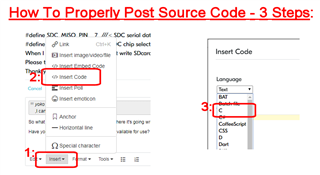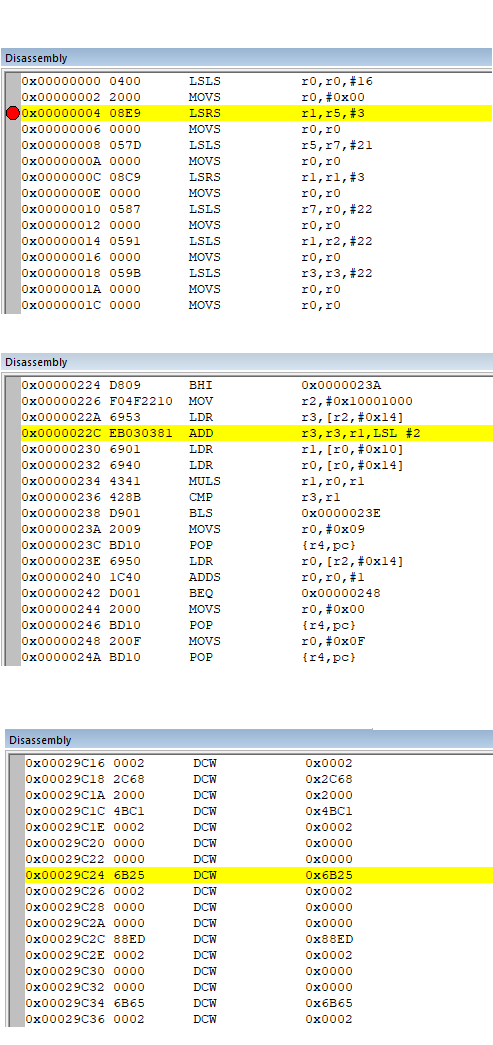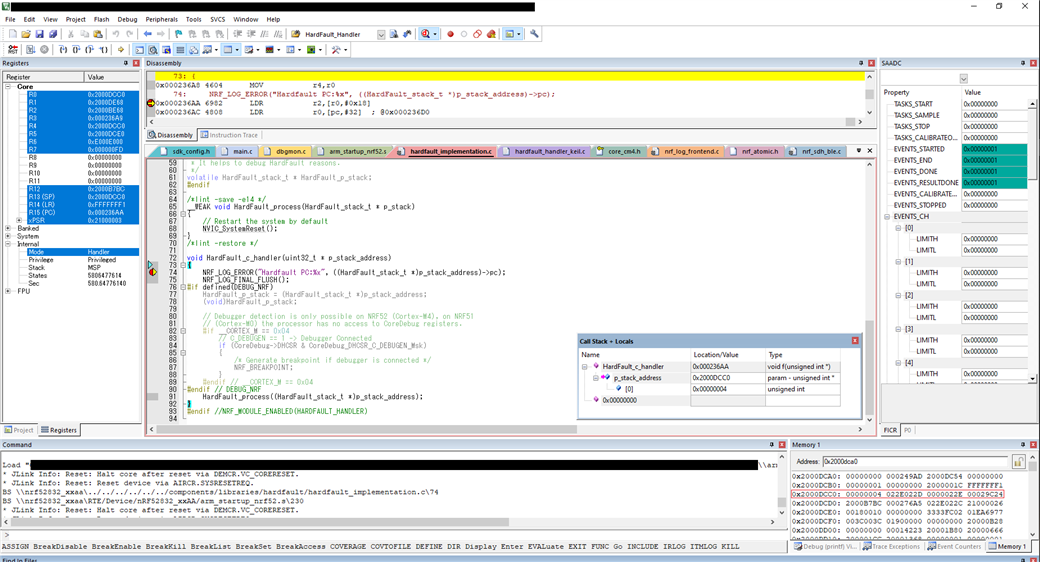We are now developing BLE ADC sender, using nRF5_SDK_14.0.0_3bcc1f7, and two nRF528322s (sender and reciever).
We send SAADC data via BLE, after that, we disconnect, and tried to reconnect, then "HardFault" happened.
Situation is as follow,
Reconnection event, "BLE_GAP_EVT_CONNECTED" is successfully happens, so connection process is thought to be finished.
SAADC process is made from \examples\peripherak\saadc.
Data from SAADC are saved in buffer memory (160x100) in interrupt process. And other function is reading this buffer and taking average of them, and is about to send them via BLE.
Sending packet data size is 143 bytes. Sending period is about 1 second. Data sending itself is successful.
Due to the situation above, we are now thinking problem is around buffer (160 x 100), but we don't think any relationship this buffer and BLE communication.
Do you have any good measure to handle this?
Part of our code below.
/****************** Happening HardFault area****************************************/
......\pca10040\s132\arm5_no_packs\RTE\Device\nRF52832_xxAA\arm_startup_nrf52.s
; Dummy Exception Handlers (infinite loops which can be modified)
NMI_Handler PROC
EXPORT NMI_Handler [WEAK]
B .
ENDP
HardFault_Handler\
PROC
EXPORT HardFault_Handler [WEAK]
B .
ENDP
/****************** SAADC process ****************/
#define BUFF_SIZE 100
uint16_t send_data_buf[ BUFF_SIZE ][ SAMPLES_IN_BUFFER+2 ] ;//ling buffer
int buf_w_point=0;
int send_count = 0;//100sample a/d data counter
int ble_send_start = 0;
int count1 = 0;
static void saadc_callback(nrf_drv_saadc_evt_t const * p_event)
{
if (p_event->type == NRF_DRV_SAADC_EVT_DONE)
{
ret_code_t err_code;
err_code = nrf_drv_saadc_buffer_convert(p_event->data.done.p_buffer, SAMPLES_IN_BUFFER);
APP_ERROR_CHECK(err_code);
if (ad_tx_start_f == 1)
{
int i;
for (i = 0; i < SAMPLES_IN_BUFFER; i++)
{
send_data_buf[ buf_w_point ][ i ] = p_event->data.done.p_buffer[i];
}
send_count++;
send_data_buf[buf_w_point][SAMPLES_IN_BUFFER] = (uint16_t)m_adc_evt_counter;
send_data_buf[buf_w_point][SAMPLES_IN_BUFFER+1] = (uint16_t)send_count;
if(buf_w_point> (BUFF_SIZE-1))
{
buf_w_point=0;
}
else
{
buf_w_point++;
}
}
else
{
send_count = 0;
buf_w_point=0;
}
m_adc_evt_counter++;
now_buffer_pool_p = (uint16_t *)p_event->data.done.p_buffer;
}
}
/****************** Reading buffer process ****************/
if(send_count > 10)
{
//send_count--;
m=0;
param[2].uspoint = &adc_data[0];
for(i=0;i<100;i++)
{
total=0;
for(n=0;n<16;n++)
{
total += send_data_buf[ buf_r_point ][ m+n ];
}
//ave = total/16;
ave_too = total >> 4;
param[2].uspoint[i] = (uint16_t) ave_too;
m=m+16;
if(m>=160)
{
send_count--;
m=0;
if(buf_r_point> (BUFF_SIZE-1))
{
buf_r_point=0;
}
else
{
buf_r_point=buf_r_point+1;
}
}
}





